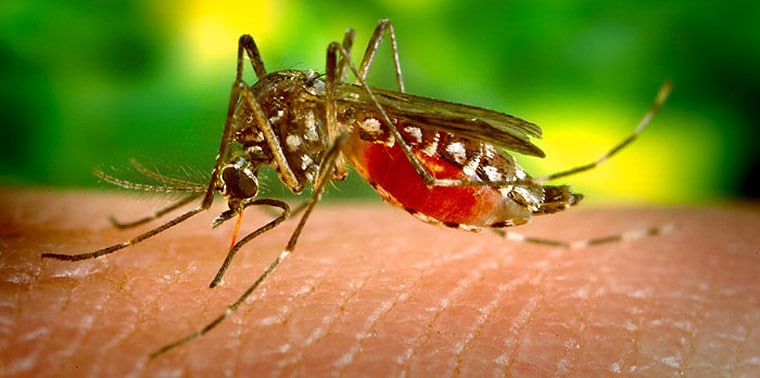mRNA vaccines have great potential when applied can banish Malaria from many parts of the world.

Scientists have developed two mRNA antibodies that have an enormous ability to reduce malaria infection and as well as its transmission in animal studies. These two vaccines induced a powerful response irrespective of the way it was given whether individually or in combination, found by a team of scientists from George Washington University, US.
Nirbhay Kumar, a professor at the George Washington University Milken Institute School of Public Health stated that such vaccines have great potential when applied can banish Malaria from many parts of the world.
“Malaria elimination will not happen overnight but such vaccines could potentially banish Malaria from many parts of the world,” said Nirbhay Kumar. This study was published on Thursday 1 December 2022.
READ MORE: WHO recommends the world’s first malaria vaccine for children at risk
Kumar in a statement said that this mRNA was extremely successful in our fight against Covid and now we tried to adapt it and use it in our fight against Malaria.
“The mRNA vaccine technology can really be a game changer. We saw how successful this technology was in terms of fighting COVID and for this study, we adapted it and used it to develop tools to combat malaria,” Kumar stated.
What Causes Malaria?
6 Plasmodium species cause malaria in humans: Plasmodium falciparum, Plasmodium vivax, Plasmodium malariae, Plasmodium ovale curtisi, P. ovale wallikeri and Plasmodium knowlesi. Put of this the study was focused on 1 parasite species which is the deadliest to humans causing malaria. This study was published in the journal npj Vaccines on Thursday.
Anopheles mosquitoes, P. falciparum along with P. vivax, are responsible for over 90% of all Malaria cases worldwide and 95%of all the deaths caused by Malaria. Most deaths are found in sub-Saharan Africa however, Malaria keeps on terrifying a portion of the total populace. Malaria is caused by the bite of the Anopheles Mosquitoes.
Malaria mostly affects sub-Saharan Africa but it doesn’t let the other part of the population rest easily as well. Scientists said that half the world’s population is at risk of contracting this deadly disease.
The Research
The researchers developed two mRNA vaccines to disrupt different parts of the parasite’s life cycle.
They one group of mice was immunized with an mRNA vaccine targeting a protein that helps the parasites move through the body and invade the liver.
The other group of mice was immunized with a vaccine targeting a protein that helps parasites reproduce in a mosquito’s midgut.
The immunized mice were then challenged with the parasite-causing infection and vaccine-induced antibodies were tested to interrupt malaria transmission.
The study found both vaccines induced a potent immune response in the mice and were highly effective in reducing infection in the host and in the mosquito vector.
ALSO READ: Russian Soldiers are using rape as a “Weapon”: Ukraine’s First Lady Olena Zelenska
The presence of protective antibodies during the transmission of parasites to healthy mosquitoes dramatically reduced the parasite load in the mosquitoes, an important step in disrupting malaria transmission, according to the researchers.
Kumar said, “These vaccines were highly effective at preventing infection and they wiped out transmission potential almost entirely,”.
The mice were also immunized with both vaccines together which gave a tremendous result without compromising the immune response but effectively reducing the infection and transmission. Hence, co-immunization was also effective.
The DNA Vaccines were far less effective than the mRNA Vaccines in inducing an immune response, the scientists found the mRNA Vaccines to be far superior to DNA Vaccines.
The goal of the researchers is to produce vaccines that are safe for humans. “To have a vaccine cocktail that can effectively disrupt multiple parts of the malaria parasite’s life cycle is one of the holy grails of malaria vaccine development,” Kumar added.
Once out it can be a huge relief for humans living in terror of Malaria. According to WHO Malaria claims the lives of more than 400,000 people every year. Children account for 67% of all malarial deaths worldwide.













